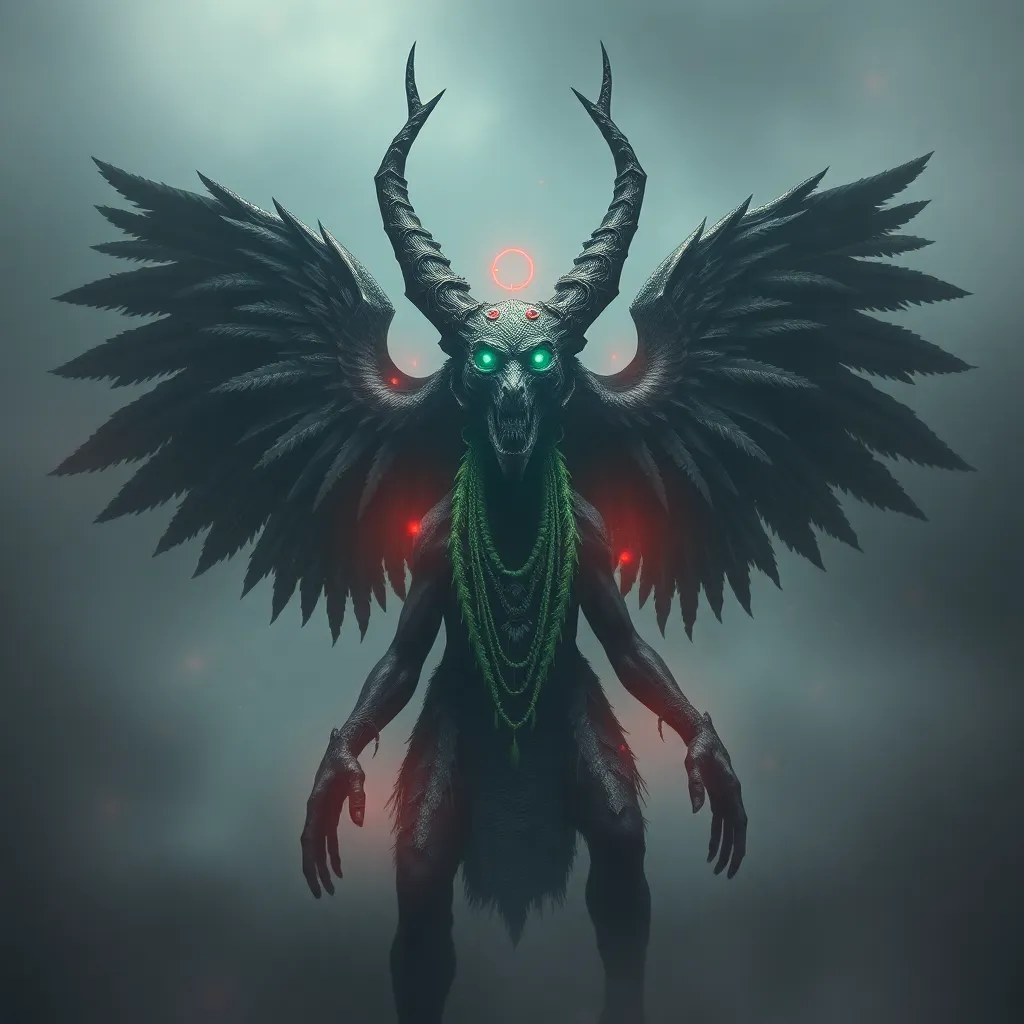The Leviathan’s Revenge: Examining the Role of Sea Monsters in Mythology
I. Introduction
Throughout history, sea monsters have captured the imaginations of people across various cultures. These mythical creatures, often depicted as terrifying and powerful, symbolize the unknown depths of the oceans and the fears associated with it. Among these enigmatic beings, the Leviathan stands out as a significant figure, appearing in numerous mythologies and religious texts.
This article aims to explore the role and symbolism of sea monsters, particularly the Leviathan, in mythology. By delving into historical contexts, cultural significance, and psychological interpretations, we can gain insight into why these creatures have remained a compelling part of human storytelling.
II. Historical Context of Sea Monsters
Ancient civilizations viewed the sea with a mixture of reverence and fear. The vastness and mystery of the ocean often led to the creation of myths surrounding monstrous beings that could either protect or threaten humanity.
As folklore developed, sea monster myths emerged, reflecting societal beliefs and fears. The following points outline the evolution of these narratives:
- Ancient Civilizations: Cultures such as the Mesopotamians, Egyptians, and Greeks incorporated sea monsters into their mythologies, often portraying them as guardians of the sea or embodiments of chaos.
- Folklore Development: As maritime exploration increased, so did tales of sea monsters, with sailors sharing stories of terrifying encounters with these creatures.
- Cultural Comparisons: From the Japanese Umibozu to the Scandinavian Kraken, sea monsters vary widely across cultures but share common themes of fear and awe.
III. The Leviathan: Origins and Interpretations
The Leviathan is a prominent figure in various religious texts, most notably in the Bible. Its origins and interpretations reveal much about the cultural and spiritual significance attributed to this sea monster.
In biblical references, the Leviathan is depicted as a colossal creature, often associated with chaos and the untamed forces of nature. Key points include:
- Biblical References: The Leviathan is mentioned in several passages, including Job 41, where it is described as a fearsome being created by God.
- Jewish and Christian Traditions: In Judaism, the Leviathan symbolizes God’s power and the chaos of the sea. Christian interpretations often view it as a metaphor for evil or chaos that God will ultimately conquer.
- Symbolic Meanings: The Leviathan embodies the struggle between order and chaos, serving as a reminder of the limits of human understanding and control over nature.
IV. Sea Monsters in Greek and Roman Mythology
Greek and Roman mythology is rich with tales of sea monsters that serve crucial roles in epic narratives. Notable creatures include the Kraken, Scylla, and Charybdis, each symbolizing different aspects of the sea and its dangers.
These sea monsters often appear in hero journeys, where they test the courage and resolve of characters. Key examples are:
- The Kraken: A giant sea creature that drags ships to their doom, representing the uncontrollable nature of the sea.
- Scylla and Charybdis: Two monsters that embody the perilous choices faced by heroes, highlighting the dangers of navigation and the consequences of fate.
- Lessons and Morals: These myths often convey themes of bravery, the importance of wisdom, and the respect due to nature’s power.
V. Cultural Significance of Sea Monsters in Modern Times
In contemporary culture, sea monsters continue to captivate audiences through literature, film, and art. Their resurgence can be attributed to several factors:
- Influence on Popular Culture: Movies like “Pirates of the Caribbean” and “The Shape of Water” have reimagined sea monsters, blending traditional myths with modern storytelling.
- Contemporary Storytelling: Authors and filmmakers are exploring ecological themes and the relationship between humanity and the ocean through the lens of sea monsters.
- Environmental Themes: Many narratives now incorporate real-world issues such as pollution and climate change, reflecting society’s growing concern for oceanic ecosystems.
VI. Psychological and Symbolic Interpretations
The ocean is often viewed as a symbol of the unconscious mind, where sea monsters represent the fears and unknown aspects of human psychology. This section explores these interpretations further:
- Fear and the Unknown: Sea monsters can be seen as manifestations of our fears, representing the aspects of life we cannot control or understand.
- Chaos and Control: The Leviathan, in particular, symbolizes the struggle for order amidst chaos, reflecting humanity’s desire to dominate nature while acknowledging its unpredictability.
- Metaphors for Personal Struggles: These creatures can also serve as metaphors for personal battles, encouraging individuals to confront their fears and uncertainties.
VII. The Role of Sea Monsters in Ecological Narratives
Examining the connection between myth and ecological awareness reveals how sea monsters can serve as allegories for real-world environmental challenges. Key points include:
- Myth and Ecological Awareness: Sea monsters can symbolize the consequences of human actions on the ocean, encouraging a deeper understanding of environmental issues.
- Real-World Allegories: Creatures like the Leviathan can represent the destructive forces of climate change, pollution, and overfishing.
- Inspiration for Conservation: By harnessing the power of myth, we can inspire conservation efforts and foster a sense of responsibility towards our oceans.
VIII. Conclusion
Sea monsters, particularly the Leviathan, play a crucial role in mythology and storytelling across cultures. They embody our fears, reflect our values, and challenge our understanding of nature and ourselves.
The enduring legacy of these mythical creatures reminds us of the importance of respecting the ocean’s power and mystery. As we continue to explore these themes, we uncover valuable insights into our relationship with nature and the stories that shape our understanding of the world.
As we reflect on the significance of sea monsters, let us remain open to the lessons they offer and the relevance of mythological themes in our lives today.



